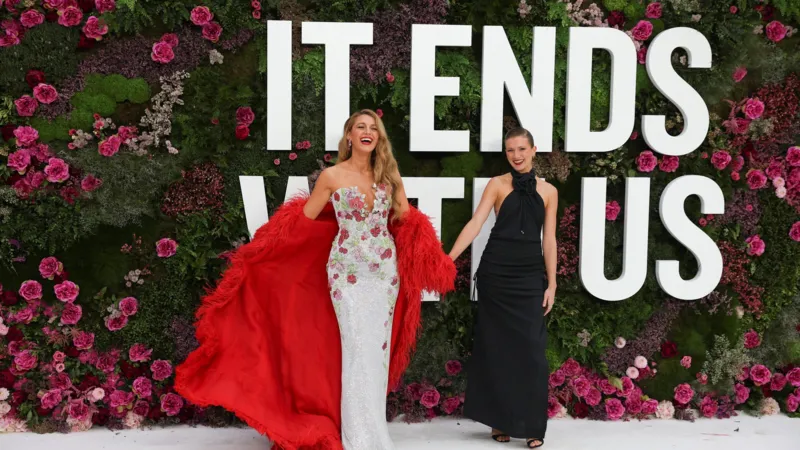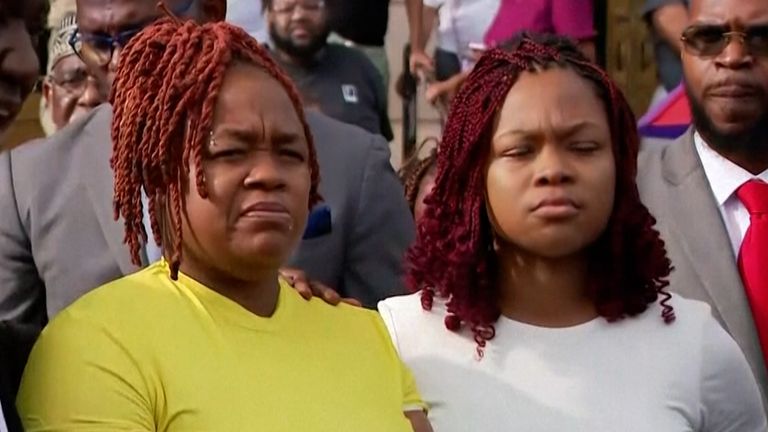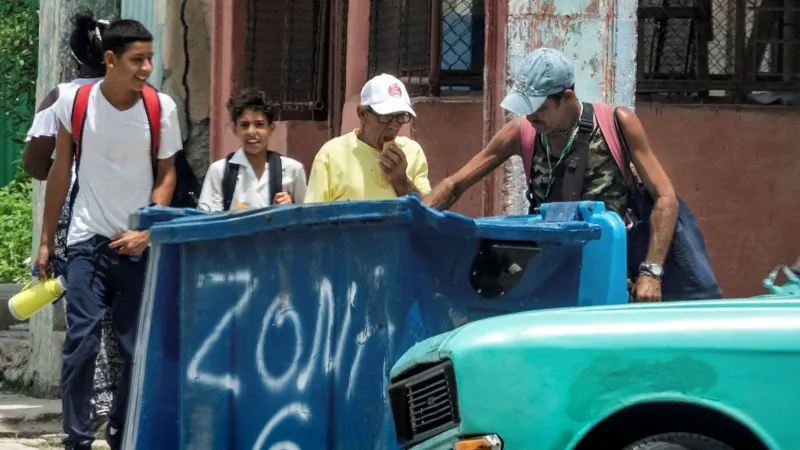Blake Lively's PR woes and how we talk about victims
“This message is for Blake Lively. Hi Blake. I’m a domestic violence survivor and my heart honestly just broke for the domestic violence community because in this movie, you represented us.”

In a TikTok video that’s been viewed four million times, US woman Ashley Paige launched a blistering attack on the Hollywood actor for how she’s promoted her latest film, It Ends With Us, an adaption of a novel about a woman experiencing domestic abuse.
Critics say it's been promoted like a romance film, that its one-minute trailer doesn't adequately disclose the abuse storyline, and that instead of advocacy on the red carpet, Lively has highlighted fashion and florals.
Ms Paige accuses Lively of promoting it like it's “the sequel to Barbie".
Lively's comments during sometimes clumsy promotional interviews have also led to discussion about how to properly talk about victims - and about how survivors of domestic abuse relate to what they've been through.
The film is an adaptation of Colleen Hoover's best-selling novel. Lively plays a florist named Lily Bloom who falls head over heels for a surgeon; their romance is exciting and intense, before it turns abusive. The story features several graphically violent scenes, including one of attempted rape.
Lively – the Gossip Girl soap icon turned screen star – is perhaps one of the most marketable actors of the past decade. A Met Gala fixture, besties with Taylor Swift, she and husband Ryan Reynolds are one of Hollywood's power couples; moguls with their own production company and several off-screen businesses selling their All-American appeal.
'We ran'
Ms Paige, who lives in Colorado with her young daughter, is a survivor of abuse herself who now campaigns on the issue.
“My life story is very reminiscent of [Lively’s character] Lily Bloom’s," she told the BBC. "I had a daughter with my abuser and we ran.”
But she bristles at how Lively has spoken about the character.
SUPPLIED Ashley Paige and her daughterSUPPLIED
Ashley Paige and her daughter
Lively has described Lily as both a “survivor” and a “victim”, and has said “while they are huge labels, these are not her identity".
“She defines herself and I think it’s deeply empowering that no one else can define you," she told the BBC at the London premiere in August.
At the New York premiere, when asked about what she would say to survivors, she said: “You are so much more than just a survivor or just a victim. While that is a huge thing, you are a person of multitudes, and what someone has done to you doesn’t define you. You define you.”
But Ms Paige is offended by the idea that she is “more” than a victim. Her trauma isn’t just something she can neatly lock away, she says.
“It has shaped my identity. It shapes the way I communicate. It shapes the way I perceive the world… It shapes everything,” she said.
“And so although it's not our identity, it permeates every aspect of who we are, because we're never the same after that.”
If you've been affected by the issues in this story, help and support is available via the BBC Action Line
On TikTok, US trauma therapist Maddie Spear also shared a video explaining why Lively’s rhetoric was troubling to some.
“While I love the positivity in promoting light and life, oftentimes trauma survivors are told to just make light of their story… and I feel like [Lively’s] actions are doing just that. Her actions are continuing to make victims feel like their story is too heavy to even talk about,” she said in the clip.
In an opinion piece in US magazine Glamour, titled “The Problem with the More Than A Victim Discourse", writer Kathleen Wash says: “I’m sure it wasn’t her intention, but... saying someone is 'more than just a survivor' or 'more than just a victim' implies that there’s something bad about identifying as a victim in the first place".
And a spokesperson for the charity Solace Women’s Aid told the BBC: "While likely not [Lively's] intention, this sentiment could reinforce some of the shame victims feel about the continuing impact of abuse or make them feel they must just move on from this experience."
But there is no uniform view on this among those who've experienced abuse, say domestic abuse organisations.
Many survivors do relate to Lively’s optimistic message that they are not defined by their trauma, they say.
What might have amplified the anger around Lively's comments, however, is the view that she has minimised the topic through the film's wider branding.
Online, video edits have proliferated of Lively’s more blithe responses to questions about her character. In one red carpet video she answers a question about victimhood by joking about her neoprene floral outfit: "You can go deep sea diving in it."
Another clip that’s gone viral - a promotional video put out on the film’s Instagram page - has Lively encouraging people to watch the film, by saying: “Grab your girls and wear your florals!”
During the press tour, the actor has also promoted her multiple off-screen businesses: a new hair care line and her brand of alcoholic drinks.
Studies show significant links between alcohol and domestic violence. But her drinks business Betty Booze has promoted cocktail recipes inspired by the film’s characters - including the abuser, Ryle.
She says the worst failing of the film is its marketing, which she characterises as misleading.
It's a view backed by the charity Women's Aid, which says that "despite domestic abuse being a key theme of the film, much of the marketing has ignored this and viewers have not been warned about the potentially distressing content".
The US-based National Domestic Violence Hotline says more than one in three (35.6%) of women and one in four men (28.5%) have experienced rape, physical violence, and/or stalking by an intimate partner in their lifetime.
In the UK, the Office for National Statistics (ONS) estimates one in five adults have experienced domestic abuse - one in four women and one in seven men.
Ms Paige says that immediately after the film's US premiere, her TikTok feed was full of videos of shell-shocked survivors.
“You watched It Ends With Us and it all came back. The guilt, the shame, the anger, the love-bombing, the fear,” one person wrote.
'Still trying to recover'
Another said: “Yeah I went and saw this today, left with a PTSD attack. Was not prepared to see my life play out in front of me."
“I’m still trying to recover from the movie. Took me right back,” was another comment.
Domestic abuse organisations say that, on the whole, representing abusive situations in popular culture should be done sensitively.
“When making any kind of media about violence against women and girls, the potential impact on survivors should be front and centre in every aspect of its development,” Andrea Simon from the UK-based End Violence against Women Coalition told the BBC earlier this week.
Lively stressed in an earlier interview with BBC News that she and all others on the film felt the "responsibility of servicing the people that care so much about the source material”.
And last week, seemingly in response to the growing criticism, Lively posted her first message of the press tour on social media, linking to domestic abuse phone hotlines and charities.
She also shared the BBC news article about her comments at the UK premiere, and BBC News has approached her for further comment.
Her co-star Brandon Sklenar this week also spoke out about what he saw as the vilification of Lively.
He said: “There isn’t a single person involved in the making of this film that was not aware of the responsibility we had in making this.”
-BBC







